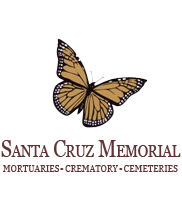

Obituary of Elsie Mae Aguila
Please share a memory of Elsie to include in a keepsake book for family and friends.
Elsie Mae Fox Aguila – a revolutionary organizer, daughter of the working class, long-time Operations Manager of Santa Cruz Western Service Workers Association with 35 years of full-time continuous devotion to the cause of unrecognized workers that grew out of her own struggles as a domestic worker, nurse’s aide, piece worker and single parent, passed away on March 18, 2021 at the age of 91 at Hearts and Hands Post Acute Care & Rehab Center in Santa Cruz, California. The cause of death was complications from cancer and COVID-19.
Born Elsie Mae Fox to Helen Alberta Bean and Albert Leroy Fox on October 9, 1929 in Mendocino, California, Elsie spent her early childhood years growing up amongst the giant redwoods in Northern California. Her father was a labor organizer who at age 19 hopped a freight train west where he met and joined a group of organizers with the Industrial Workers of the World (the “Wobblies”). They were on their way to put together a strike. He ended up in Mendocino County with two other Wobblies, organizing a union in the local sawmill. Laboring from dawn to dark for one dollar a day, with only Sundays off, he fed redwood logs by hand through a gas-motored saw.
Albert Fox met Elsie’s mother Helen, a farmer’s daughter, at a church picnic, an event popular among the mill workers as a place to socialize, and, Elsie would emphasize, where you could get a free meal. Two years later the couple married. They built their own log cabin on 20 acres of timberland near Little River, California, a small town centered on a scenic bluff at the mouth of the Little River, with beautiful vistas of the Pacific Ocean.
The couple had four children, with Elsie the sole girl. She survived her brothers: Stanley Fox, 15 years her senior; Morton Everett Fox, eleven months older; and Alton Ray Fox, four years her junior.
Elsie was born the year the Great Depression hit. The lack of construction eliminated the demand for wood, resulting in no trees being felled or logs cut. With no work for them there, the sawmill workers scattered, seeking employment. Elsie’s family had chickens and pigs, and their goats provided a source of milk and cheese. They were able to barter food for supplies they needed for a time. Her mother made their clothes, washed in homemade soap. She cold-packed fruit and vegetables in jars. Albert hunted venison, fish and rabbit, and then Helen salted, pickled or smoked the meat. After Alton’s birth, Albert took a job fighting fires for two years to pay the big hospital bill.
When Elsie was three years old her paternal grandfather, who Elsie remembered fondly, injured his leg. Due to his diabetes, lack of medical care and absence of access to the then-newly developing antibiotics, he died from gangrene, which was a quite common occurrence in those days.
Her oldest brother, Stanley, left home and joined the Civilian Conservation Corps.
When Elsie was seven, the federal government turned the area where they lived into a national park. Her family was mandatorily relocated to an area just south of Santa Cruz, California. She remembered how it was there that she first saw a flush toilet and experienced indoor plumbing. Her parents acquired a house with a mortgage through the federal Works Progress Act (WPA), a New Deal program.
There the family raised chickens and sold eggs. But when a chicken epidemic hit, the state health department ordered everyone in Santa Cruz County to kill their chickens to prevent the disease from spreading statewide. Suddenly again without a source of income, they were unable to make the mortgage payments, lost the house and moved into the city of Santa Cruz. They rented a three-bedroom house on a quarter acre on Pine Street for $16 a month.
Her parents took jobs at a restaurant in town. Her father washed pots and pans and her mother made the salads. When she was 13, Elsie got a job at the same restaurant, washing and drying the water glasses. “This was where I first encountered sexual harassment,” Elsie recounted. “The boss was a pig. When I told him to lay off, he reminded me that my dad and mother were some of his best workers, and how would I feel to have them lose their jobs?” She did not put up with this abuse; she found another job that same week, looking after the first cook’s baby daughter. This was Elsie’s first nanny job. In those days, they were not taking Social Security out of domestic workers’ wages, who then and now are among the lowest-paid workers, often with no rights at all, except to quit.
Elsie recalled her father was an avid reader; he often discussed his reading with her, including the works of Marx and Lenin. He took his children to meetings of an organization he belonged to that was called “Ham and Eggers,” part of an old-age pension movement in California during the1930s that at one point had nearly one million members.
Her brother Morton went into the Navy and stayed for a 35-year career. Alton joined the Army for four years and went to college on the GI bill. He spent his working life as the county surveyor; he told Elsie he retired because he couldn’t stand the dirty politics in county government.
Elsie joined the Army at age 19. She said it was her way to “get out of the house.” After she left the Army, she married Simone Paul Aguila, a card dealer. She became a housewife and raised three children: John, Cathy and David. When David was 13, Simone died of a heart attack, leaving her on her own with three children depending on her. She became a nurse’s aide in order to supplement her $100/month Social Security income.
Early in 1979, when she was 49, Elsie met a Western Service Workers Association (WSWA) organizer outside a Safeway store in Santa Cruz who explained that they were fighting for the rights of domestic workers. Elsie strongly identified with WSWA’s goal and called them the next day, scheduling to come in for a volunteers orientation. In July, after just a couple of months of volunteering, Elsie declared herself cadre, seeing her life goals aligned with that of the association’s. Through her leadership, WSWA expanded its Benefit Program. She ran budget-saving supplemental food distributions out of a WSWA Benefit Office in space donated by the First Presbyterian Church of Watsonville.
In November of 1983, Elsie became the Santa Cruz WSWA Operations Manager. In 1985, WSWA moved its office from Santa Cruz to 2137 Freedom Boulevard, in Freedom, California. Elsie set up a Benefit Office at 1206 Fair Avenue in west Santa Cruz to maintain a location where Santa Cruz members could more easily access the benefit program, filling their requests.
In the fall of 1988, Elsie spearheaded a campaign to enroll more members into a budget-planning and savings program, called Benefit Plan II, with a cornerstone of weekly supplemental food distributions of fresh produce, baked goods and staple foods. This soon grew to include now annual seasonal budget-saving programs, such as Back-to-School Clothing and Supplies distributions, Holiday and Winter Survival Campaigns.
When the deadly and destructive October 17, 1989 Loma Prieta earthquake struck, epicentered close by in the Santa Cruz Mountains, WSWA went into immediate action. Teams of volunteers with bullhorns spread out through membership neighborhoods to warn residents to not drink the contaminated tap water and to publicize that disaster victims could come to the association for relief supplies.
A huge onslaught of Benefit requests were submitted by members, many of whom had been turned away from government official assistance agencies. WSWA volunteers determined to set up tents on its rented property in Watsonville to accommodate the influx of members and volunteers, and to handle incoming donations of food, clothing and hygiene supplies.
Elsie took charge of coordinating the sorting and distribution of mountains of clothing that was so critically needed by people who were living outdoors in tents or in their cars. Homes had been destroyed or were not yet safe to return to while hundreds of aftershocks rocked the area.
Elsie knew the importance of feeding the volunteers to keep the operations going. She oversaw a schedule of volunteers making nutritious meals from donated food for as many as 100 volunteers a day who had joined the independent ad hoc all-volunteer Disaster Relief Unit.
Asked about the significance of WSWA’s year-round organizing drive, Elsie said, “We found there was no way to organize attendant care workers without organizing together with the people they care for – the low-income aged, blind and disabled recipients of In Home Supportive Services (IHSS). Unity is a key to our success, so we cannot be divided and broken. We created a strong organization built around the needs, principles and goals we hold in common.”
Brad Engle, who worked with Elsie from 1989 to 1995 as the WSWA Education Director, recalled, “Everyone who worked with Elsie knew she was a no-nonsense woman with strong working class roots. She was adept at explaining the organization’s program and strategy to members and volunteers in very down-to-earth terms, winning their participation. She was a patient trainer in systemic organizing methodology, always taking whatever time was necessary with volunteers to acquire the skills to complete their assignments successfully.”
From 1991 to 1993, Kevin MacKinen worked with Elsie as a fulltime organizer in Santa Cruz. “Elsie was the first WSWA organizer I met at the office,” he recalled. “As a new volunteer, I was drawn to her enthusiasm and interest in presenting an orientation. I remember how she loved cats, in fact, a cat in the office jumped onto her lap that day; she kept going with her presentation while petting the kitty.” MacKinen added how he often saw Elsie staffing the Operations desk, or sorting the incoming food and clothing donations. “Elsie knew any detail that had to be done was an important one to the success of the effort as a whole, and she made a point to see a thing through to get it done. And all the while, Elsie never lost her spark and sharp wit! She never hesitated to say what was on her mind.”
Guillermo Magallón, who worked with Elsie from 1992 to 1998, recounted, “Elsie demonstrated a steady and firm determination, free of persiflage, ego or pettiness. Through her daily leadership role, Elsie taught me, and all those around her, valuable lessons about being an organizer, including the importance of focusing on advancing the group and of leading by example. Never seeking attention or praise, Elsie demonstrated how each of us can and must do whatever we can to build an organizational solution to end poverty.”
Elsie took a lead role in many WSWA organizing campaigns. In 1993, she testified before the Santa Cruz County Board of Supervisors against a plan to set up a private “Public Authority” to administrate the In Home Supportive Services program. Elsie argued that the Public Authority would become no more than a way of allowing the state, county and/or the contracting agency to avoid being accountable for workers’ working conditions and the quality of care the program provided to low-income elderly and disabled IHSS recipients.
With other WSWA organizers, Elsie built the Committee for Just Housing and, in a two-year battle starting in 2004, fought for residents of Clearview Court Mobile Home Park in Santa Cruz to maintain the right to rent space for their mobile homes. After winning a 2006 court ruling granting rent-controlled status, Elsie said, “The real issue, of course, is low wages, because if workers were paid a living wage, they could afford to purchase the housing they need. Our focus is teaching our members how to organize and fight.”
On September 6, 2005, as a trustee on behalf of the membership of WSWA, Elsie closed the sale on 1012 Mission Street, a two-bedroom house, which is now WSWA’s Office Central.
As a result of her increasing age and deteriorating health, Elsie stepped down from the role of WSWA Operations Manager, while continuing to participate in the organizing to the extent she was able, especially to provide continuity and consultation to the newer generation of volunteer organizers.
To members and fellow organizers, Elsie was known for living her political beliefs; never forgetting the working class she came from and the pain and suffering that class has had to endure. She represented that class, fought for that class, and died not simply as a member of that class but as a leader of that class, never wavering in her beliefs.
Santa Cruz family medicine physician and longtime WSWA volunteer, Dr. Dawn Motyka, spoke of how Elsie as one of the last revolutionaries from the generation that experienced the Great Depression.
WSWA member Thelma Brown, R.N., a longtime friend and colleague of Elsie’s, assisted with her personal care in her final years when Elsie rented a small bungalow from her “adopted son,” John Strite. Thelma would often immediately cheer up Elsie by talking about the cats they shared in common. “There was the Strite family cat, Rupert, that often made his way into Elsie’s little house. And there was a whole slew that would come around the old WSWA office in Freedom: Rufus, Hanky, Ernie and Little Girl. Elsie loved them all.”
An avid reader, Elsie donated her collection of paperback fiction books to Hearts and Hands Post Acute Care & Rehab Center when she moved in there once she was in need of round-the-clock care. Staff made a point of relaying how much they had come to love her, and noted that Elsie would reach out to other residents.
Josh Clarke, current WSWA Operations Manager, and Leslie Arenas, Administrative Assistant, visited Elsie as soon as they were allowed into the facility, upon learning that Elsie had been transferred into hospice due to metastasized lung cancer, a pulmonary embolism and lung damage from a prior COVID-19 infection. They brought a warm, plush blanket, warm socks and some stuffed animals that they knew Elsie enjoyed.
Elsie is predeceased by her parents and brothers. She is survived by her children: John Ketter, Cathy Aguila Webber and David Allen Aguila. Elsie will be greatly missed by hundreds of her fellow organizers and the thousands of members and volunteers whose lives she touched throughout her life and through her organizing with Santa Cruz WSWA.
To plant a beautiful memorial tree in memory of Elsie Aguila, please visit our Tree Store

A Memorial Tree was planted for Elsie
We are deeply sorry for your loss ~ the staff at Santa Cruz Mission Chapel
Online Memory & Photo Sharing Event
Ongoing
Online Event
About this Event

In Loving Memory
Elsie Aguila
1929 - 2021
Look inside to read what others have shared
Family and friends are coming together online to create a special keepsake. Every memory left on the online obituary will be automatically included in this book.
Services for Elsie Aguila
There are no events scheduled. You can still show your support by planting a tree in memory of Elsie Aguila.
Plant a tree in memory of Elsie
Santa Cruz Mission Chapel
1927 Ocean Street
Santa Cruz, CA 95060
Telephone: (831) 426-1601
California License FD#: 1476
COA #54 | CR#179
Email: info@scmemorial.com
Oakwood Chapel
3301 Paul Sweet Road
Santa Cruz, CA 95065
Telephone: (831) 475-2464
California License FD#: 1530
COA #53
Email: info@scmemorial.com
© All Rights Reserved |
Admin Login | Website powered by FuneralTech & TA | Privacy Policy | Terms of Use

